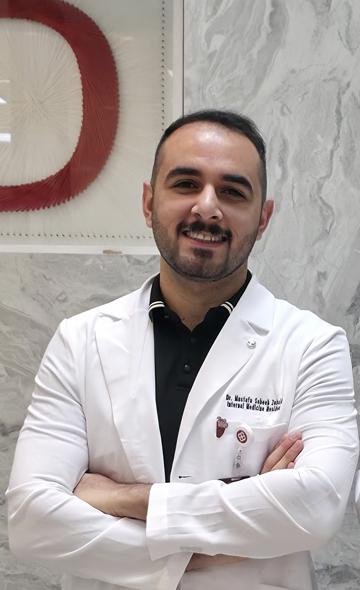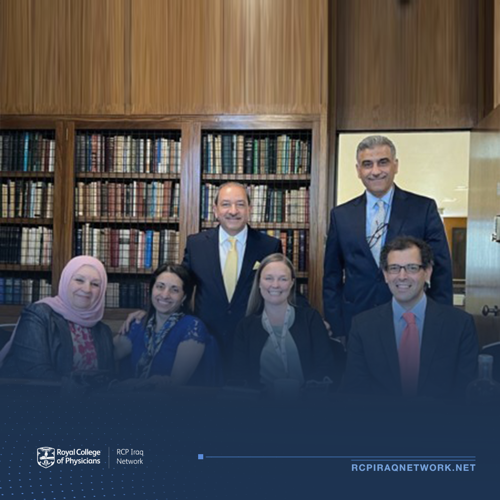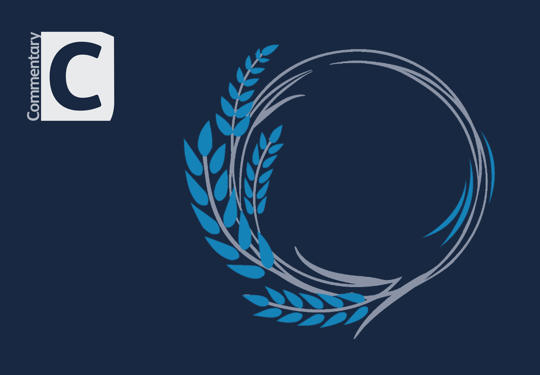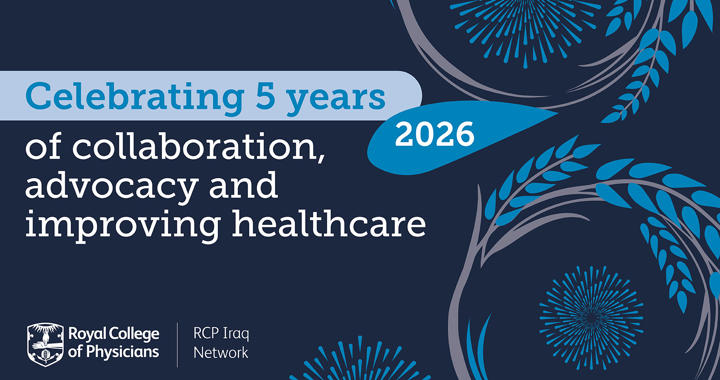The RCP Iraq Network was founded in November 2020 to improve education, health service provision and research for Iraqi physicians – from undergraduate students to newly graduated doctors, all the way to consultants.
Dr Mustafa Zubaidi is a resident doctor, currently training in a public hospital in Iraq, who works within the RCP Iraq Network to improve medical training and research. He shares his experience of training with Commentary.
Can you tell me about your medical background and training so far?
I'm a graduate doctor from Wasit University's College of Medicine. I graduated in the first rank of my class in 2022. After that, I started working as a teaching assistant there – mainly I was in small group teaching and helping students in clinical teaching; the bedside, specifically. After that, I started my rotations; the medicine, surgery, paediatrics, emergency medicine rotations took about 12 months.
I returned to my college to work as a teaching assistant, but now my main role was clinical teaching and bedside teaching. One month ago, I started my residency programme, training in internal medicine, and also successfully completed my full MRCP(UK) exam.

Can you tell me about how medical training is structured in Iraq?
Basically, we have 6 years of medical school. After that, there is a year of rotation, meaning that you have to be part of internal medicine for 3–4 months, then other specialties. After this year you have to serve in the peripheral areas of Iraq and the health sector for 1 year. So 2 years after graduation, you can apply for residency training programmes. There's high competition branches, as usual, and you can train outside Iraq. Then there are differences in the training years, according to the programme and specialty.
What challenges do resident doctors face at the moment in training?
The main problem is the workload, which makes it very hard for doctors to stay in a calm and safe atmosphere for training. In recent years there's a new problem, which is the very high competition rate, especially in surgical branches, ophthalmology, orthopaedics and also nowadays in gynaecology.
This problem is due to the very large number of students graduating from medical school in Iraq. There's a very large number of graduates and very limited spaces for their training.
This is a problem that I think will be solved in the future by the ability to offer new training centres in different specialties; these centres will solve the problem of the workload for the doctors.

How is the RCP Iraq Network helping to develop better health service provision in Iraq?
The RCP Iraq Network works mainly to provide a better health services by focusing on the scientific activities, providing a better medical education programme, research guiding for medical students and graduates, and lastly providing an elective training outside Iraq. The RCP Iraq Network helps a lot of students and graduates to develop their scientific activities by the meetings, every 2–3 months to discuss challenging cases. They also provide courses for the MRCP exam and in-person courses.
And as a part of the medical education team, we have conducted many workshops to talk about the basics of medical education for medical students.
One small project, the young educators, is unique and important. We focused on the students who attended all sessions provided by the medical education subgroup. We took these participants into a small group – the young Iraqi educators – and gave them extra sessions with senior doctor specialists in medical education. The main idea of this project is to create medical educators who will lead their colleges in the future. We will see the good from this programme in the next 5–10 years, as it provides more structured and professional staff in the colleges.
Another project is the peer-assisted learning project. We conducted a workshop with 10 students from each medical school in Iraq. This was a big gathering of many students and senior experts in medical education. There were full-day workshops to talk about peer-assisted learning; we were surprised by the fact that some medical colleges have a very structured programme, starting from the first years of being a student.
I am a part of the RCP Iraq Network Scientific Steering Committee subgroup. Also I had a chance of going to the UK for a month, in Bristol’s Southmead Hospital, for training in the summer with other doctors. I have had that opportunity of exposure to an NHS system, recently after graduation, and I started to prepare for the MRCP exam as soon as I returned to Iraq. These opportunities changed my life and my perspective toward health provision.
The RCP Iraq Network also cares about research. We have a very large deficit in research in Iraq. The network tries to fill that gap by providing a research course about two or three times a year – actual training and practice for that. We also conducted a smaller group of medical students who attended the sessions provided by the research subgroup, and provided them with research projects. A few of them started to work on actual projects. I was one of them; I studied cardiovascular system risk factors in Iraq. We completed the project and published it in a journal.
We have training for postgraduate students or doctors. We are providing advice on medical training initiatives and programmes – we help students or graduates apply, and many of them got the job.
As we reach the 5-year anniversary of the RCP Iraq network, what are some of their successes and highlights?
The main successes are in term of medical education. We have the young educators, we have the basic course of medical education and we have peer-assisted learning. We have signed a memorandum of collaboration with many medical colleges in Iraq and we are trying to provide them with courses for students and staff to elevate and lift their level of medical education.
We have provided many, many workshops talking about the multidisciplinary team (MDT) and its importance – and also we are providing courses for examinations a few times a year. We have the next course in Sulaymaniyah, Iraq.
In terms of research, we have many research projects and a basic course in conducting and publishing medical research.
For elective training in the UK, we have sent about 15 medical students a year to train for a few months in the UK, for the last 3–5 years. So around 60–80 medical students across the years, and we support graduates in applying for posts in the UK.
These are the main pillars of success in the RCP Iraq Network.
What does the future hold for the RCP Iraq Network and young doctors in Iraq – what changes are happening?
The changes provided by the RCP Iraq Network are now very visible. The establishment was very difficult, and you have to work hard to create a very large network. But now the future is very bright for the RCP Iraq Network. We are aiming to host PACES exams in Iraq – this will be a very great success. It has never happened in Iraq since the establishment of the exam.
The future also looks very bright because we are sending more students and more graduates to train in the UK, and they are returning to help Iraqi people and to save the Iraqi health system. There has been a raise in the awareness of medical students and teachers about medical education and principles of medical education, alongside the accreditation programme.
Dr Mustafa Zubaidi
RCP Iraq Network resident doctor
This programme supports the ideas of the RCP Iraq Network; if you want to get accredited, you have to apply the basic principles of medical education in your school. So now it is a must for the deans of medical schools to think about the course of medical education, for their staff members and for the students.
In term of research, we are aiming to provide a very large centre to conduct medical research. We will have other projects in the future, and we'll talk about them soon.
Do you have anything else that you'd like to say?
I want to provide advice for young doctors. I graduated from university in 2022, and worked very hard to try to be extraordinary by taking the MRCP exam. I started my preparation as soon as I graduated and I completed it before starting my residency training. This was a great success story. You have to work hard but there's nothing impossible. It's in your hands, but you have to work for it.






